
Eurovision has been among the world's most famous song competitions for many years. The global audience can enjoy various music at the contest — from touching and soulful love ballads to fun and offbeat dance hymns. Ukraine is one of those countries that has delivered an assortment of hit songs and many memorable shows at Eurovision throughout the years. Until you see Ukraine again at #Eurovision2024, Rubryka will walk you down memory lane and share Ukraine's five best performances at the song contest.
Ruslana, "Wild Dances," 2004
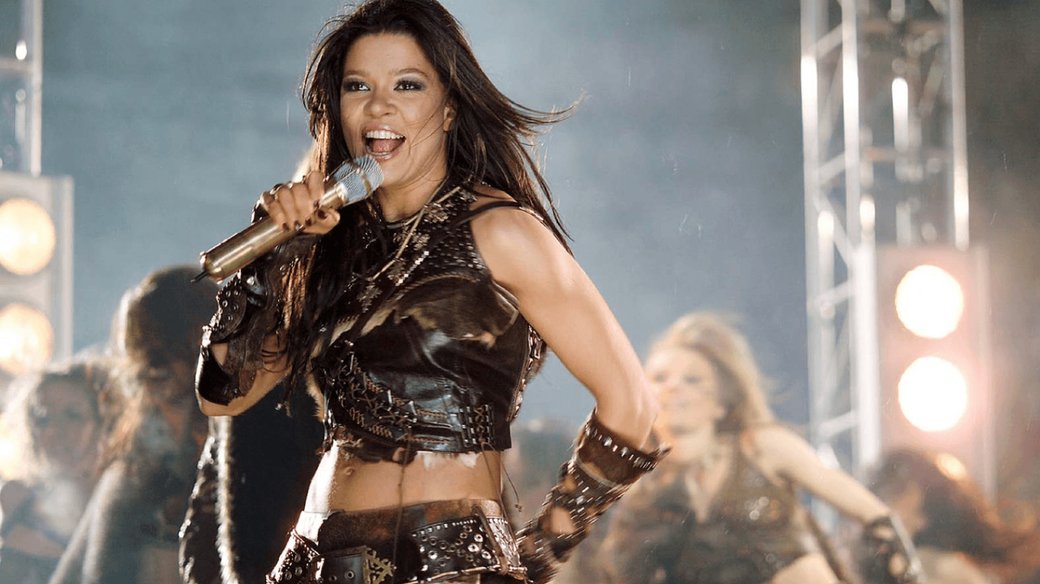
Ukrainian singer Ruslana at Eurovision 2004. Photo: Suspilne
The first win of Ukraine at Eurovision, "Wild Dances," took audiences by storm in 2004 with its catchy melody and compelling beat. Songwriters took inspiration from Ukrainian folk music and combined the sound of traditional musical instruments, like trembita, with contemporary pop-rock. Ruslana's fiery and powerful vocals conveyed the song's story about passionate love, desire, and the free spirit.
The "Wild Dances" production at Eurovision featured Ruslana and a group of dancers in leather costumes moving in sync. Their high-energy choreography was accompanied by dramatic lighting and pyrotechnics. Ruslana's and her team's strong stage presence and energetic dance moves inspired people at the show and those watching the competition at home to dance and sing along.
Ruslana, dubbed a "warrior princess" by BBC TV commentator Terry Wogan, gave a distinct performance that appealed to audiences and judges alike. It earned her high scores and secured her victory at Eurovision 2004. Thanks to "Wild Dances," more people worldwide learned about Ukrainian music and culture. The song has been an iconic Eurovision classic since then.
Jamala, "1944," 2016
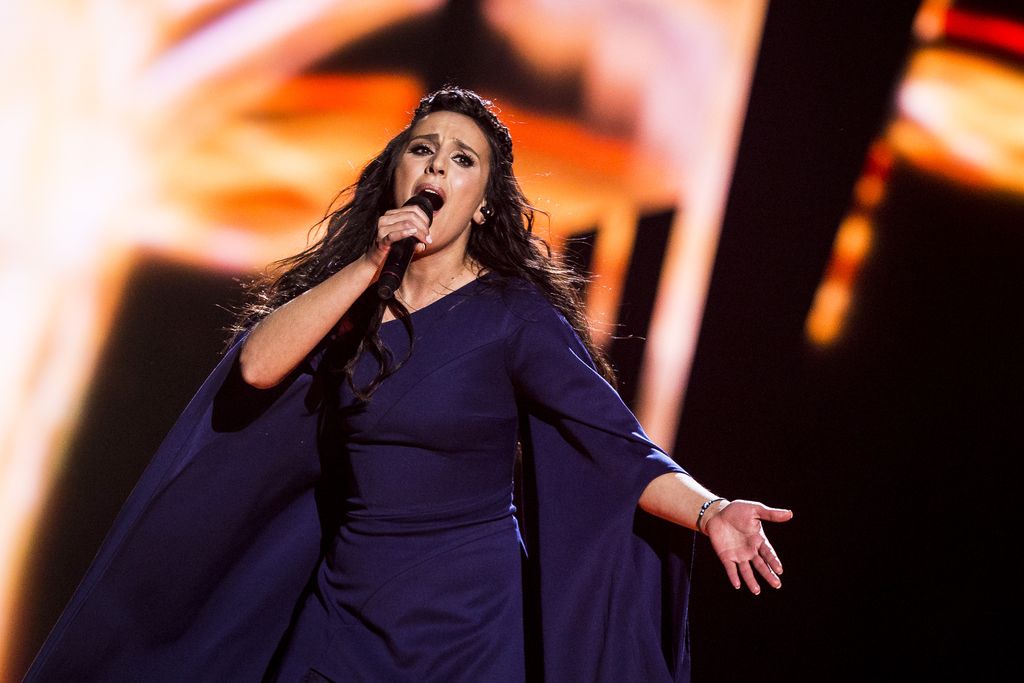
Jamala at Eurovision 2016. Photo: Michael Campanella/Getty Images
"1944" is another memorable song that brought Ukraine victory at the 2016 Eurovision Song Contest. In a haunting musical composition, Ukrainian singer Jamala recounts the tragic events of the Soviet regime's deportation of the Crimean Tatar people in 1944. This moment in history is a deeply personal subject for Jamala, who is Crimean Tatar and whose great-grandmother was one of the survivors of the deportation.
After Russia occupied Crimea in 2014 and started prosecuting the Crimean Tatar people, Jamala decided to use her voice to raise awareness of this critical issue. To make the song more impactful, Jamala sang in both English and Crimean Tatar, a language never heard on the Eurovision stage before. The emotional melody combined traditional Crimean Tatar instrumentation with modern electronic sounds.
During her performance at the competition, Jamala moved hypnotically in a flowy blue dress. Her strong voice shifted between soft and intimate tones, powerful crescendos, and whistle notes. The song was praised for its intensity and storytelling, receiving a whopping 534 points and surpassing the previous record set by Alexander Rybak's "Fairy Tale" in 2009. "1944" has gained international recognition since the competition. The British newspaper The Guardian named it the third-best Eurovision winner in 2023.
Go-A, "SHUM," 2021
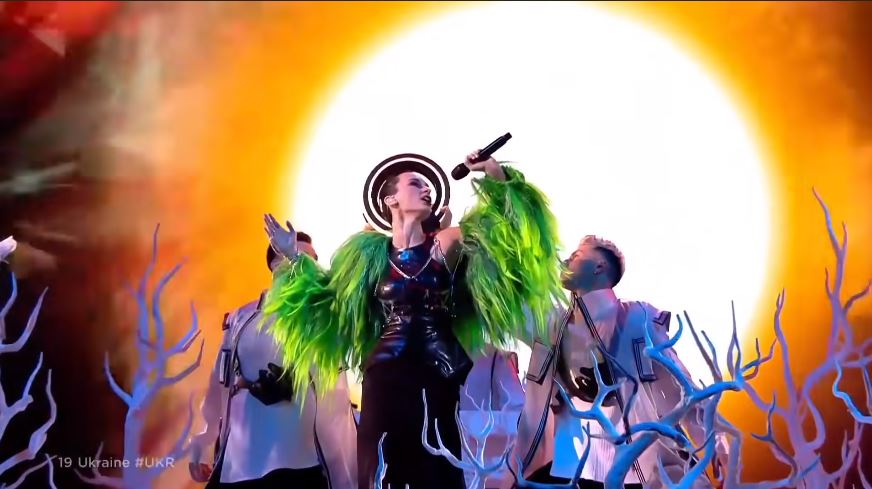
Go-A during the performance at the Eurovision 2021 Finals. Screenshot from the video broadcast. Photo: Euromaidan Press
The Ukrainian band Go-A electrified the audiences at Eurovision 2021 with its vibrant and uplifting song "SHUM." The lyrics were based on Ukrainian folk songs called vesniankas, which were traditionally used during rituals to attract the coming of spring and rich harvest. The song, entirely sung in Ukrainian, combines electronic dance music with folk instruments like the flute and bandura to create a fast-paced, energizing beat.
During the contest, Go-A gave a trance-like performance, which featured the lead singer, Kateryna Pavlenko, expressive dancers, and band members playing different musical instruments. Pavlenko's vocals, reminiscent of traditional Ukrainian folk singing style, took center stage, impressing both judges and the public with precision and power. The infectious tempo, the singer's voice, and the choreography created a sense of celebration.
"SHUM" became a fan favorite and was runner-up in the public vote. It ultimately took fifth place in the finals of the Eurovision Song Contest. After the competition, it gained even more popularity, leading the global Spotify Viral 50 daily list for the entire week. It also became the first-ever Ukrainian-language song to chart the Billboard Global 200.
Zlata Ognevich, "Gravity," 2013
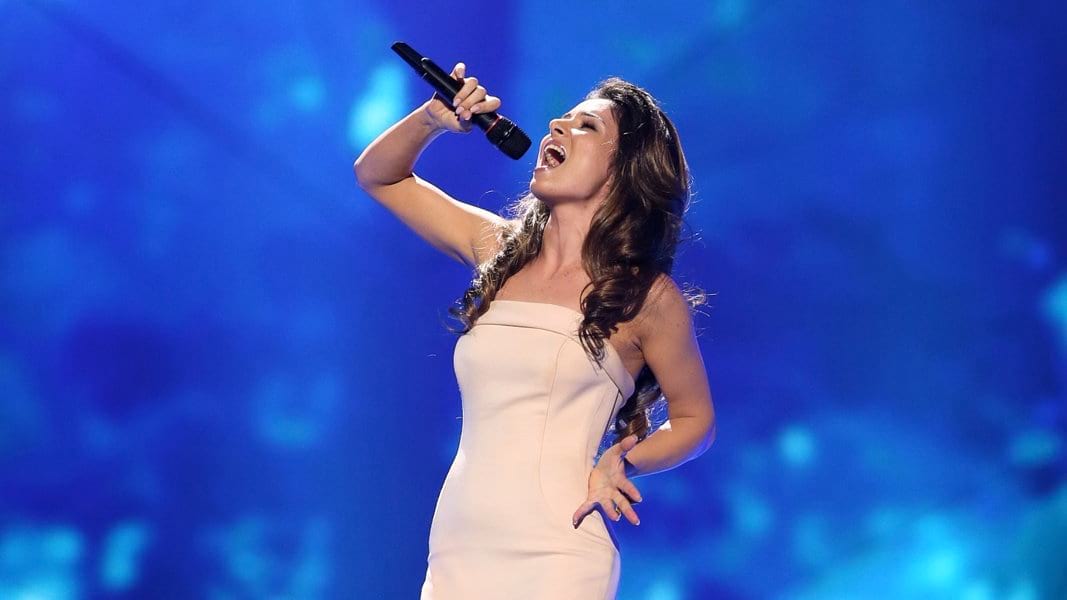
Zlata Ognevich performing at the 2013 Eurovision Song Contest. Photo: eurovision.de
A powerful and melodic song, "Gravity" by Zlata Ognevich, represented Ukraine at Eurovision 2013 in Sweden. The upbeat pop song tells the story of a person's determination to achieve their dreams. The lyrics use the metaphor of gravity to convey that if you aspire to something, you are "pulled" towards it.
Combining strings, piano, and other orchestral instruments, the composers created an uplifting song that progresses from a gentle introduction to a climactic final. The production team designed the forest-like setting to create a fairy tale feel for the Eurovision stage. The "Gravity" performance began with Zlata Ognevich being carried and put on a pedestal by a tall man who played a magical giant. The Ukrainian singer started the song with tender notes and transitioned to resounding crescendos.
Zlata Ognevich's remarkable vocal range and control were the highlights of the performance. "Gravity" was liked both by juries and the public, coming in third place with 214 points. The song led the Ukrainian charts and Turkey's 15 most popular song ranking in 2013.
Verka Serduchka, "Dancing Lasha Tumbai," 2007
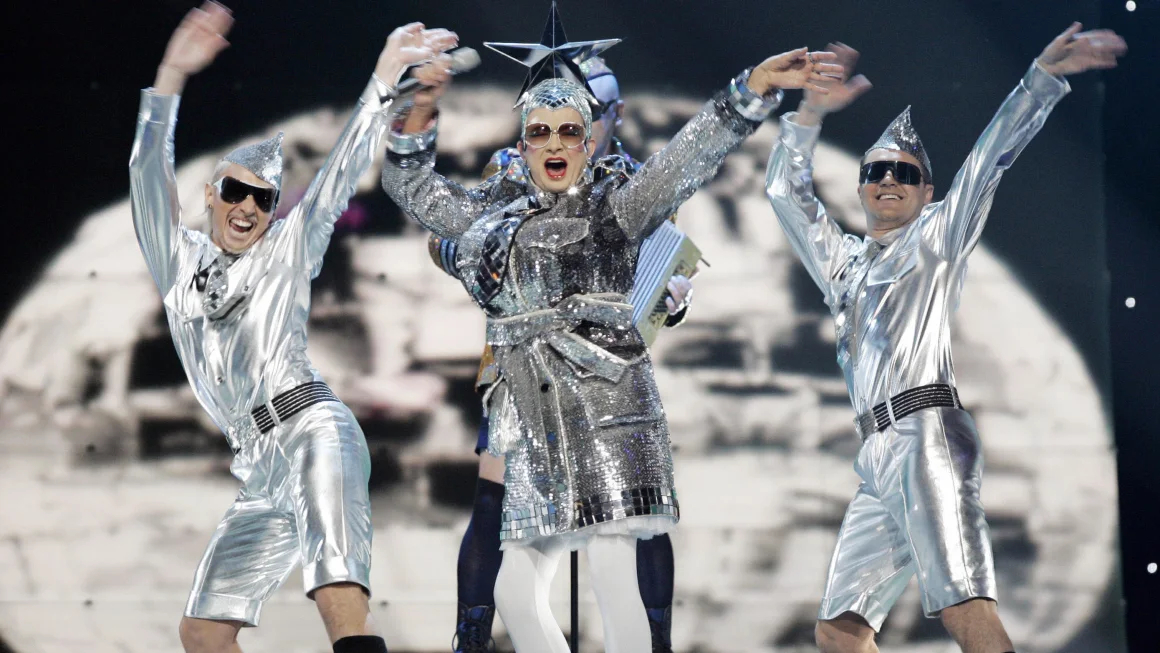
Ukranian Verka Serduchka sings "Dancing Lasha Tumbai" at Eurovision in 2007. Photo: AFP/Getty Images
Verka Serduchka's "Dancing Lasha Tumbai" is one of those iconic campy songs that people want to see at the Eurovision Song Contest. Ukrainian singer Andrii Danilko, known by his drag persona Serduchka, created a fun and catchy hit, blending dance-pop with humorous lyrics in many languages. While the song doesn't make any sense lyrically, its repetitive melody and driving rhythm energize listeners and encourage them to dance.
At Eurovision 2007, Verchucka and their band created a party-like atmosphere on stage in Helsinki, the host city. The band members and backup singers dressed in bold silver costumes moved energetically to the beat and sang along to the show's star, Verka Serchucka, who wore a huge star-shaped headpiece and dazzling outfit.
The comedic performance entertained the audience, who liked its over-the-top theatricality and humor. Serchucka's rendition of the song at the contest perfectly illustrates what Eurovision is really about. "Dancing Lasha Tumbai" was a success at the competition, taking the second spot with 235 points. Serduchka's larger-than-life personality and song remain a favorite among fans even today.
Newsletter
Digest of the most interesting news: just about the main thing






